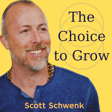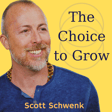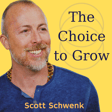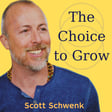
Alexander Love on Compassion, Complexity, and a Call to Wholeness
In this expansive and soul-deep conversation, Scott Schwenk welcomes Alexander Love—acupuncturist, developmental coach, and mystic—for a journey into the alchemy of healing. Together, they explore how trauma distorts perception, how widening perspective gives birth to new possibilities, and how the sacred reveals itself when we slow down enough to notice. Alexander shares potent insights into grief, love, and Awakening inside the very lives we often try to escape. This episode is a poetic call back to wholeness, a meditation on being human, and a guidepost for anyone learning to love what’s hard to love.
Alexander Love, MCC, NCC, M.Ac. is an acupuncturist, developmental coach, and facilitator. He serves as Director of Curriculum Development and Senior Facilitator at the Newfield Network, an international coach training and personal development organization.
Alexander is the creator of the Lumina Process, a shadow work modality that integrates shadow work with Eastern wisdom and integral theory. He is currently writing a trilogy, Evolutionary Gestures, which weaves developmental theory and Eastern philosophy with magic realism and memoir—including the story of his father’s murder and the restorative justice dialogue he later held with the man who took his father’s life.
At the heart of Alexander’s work is a conviction that the quality of our shared future depends on our capacity to live from post-tragic wholeness. When we find the courage to embrace our painful experiences, each one becomes a catalyst for transformation. As we evolve individually, the world transforms with us, inviting us to co-create a more beautiful future. You can learn more about Alexander at www.eoslearningcollective.com
Scott Schwenk - Master Coach, Spiritual Teacher, Culture Architect
Host and creator of the podcast The Choice To Grow, Scott is known for his hugely popular courses and workshops with OneCommune.com, Younity.com, Wanderlust Festivals, and Unplug Meditation, Scott has been catalyzing the inner evolution of others for decades: helping them to grow, transform obstacles into opportunities, and find Love within.
Apprenticeships in leadership development, meditation and philosophy training, shadow work/shadow resolution and spiritual awakening are all part of Scott’s development into the thought-leader that he is today. He continues to refine his offerings studying and practicing with key innovators at the leading edges of human development.
Scott’s teachings support the entire person to not only progressively recognize, stabilize and embody our inextricable oneness with the source of creation (Waking Up), but also to resolve the wounds of the past (Cleaning Up), continually expand our capacities for wider and more inclusive perspectives on any moment (Growing Up) and creatively and joyfully participate and collaborate with all of life as a loving thriving human being (Showing Up).
You can receive a free guided meditation and explore Scott’s courses, workshops, retreats, training and master coaching at https://scottschwenk.com and can find him on Instagram @thescottschwenk.



